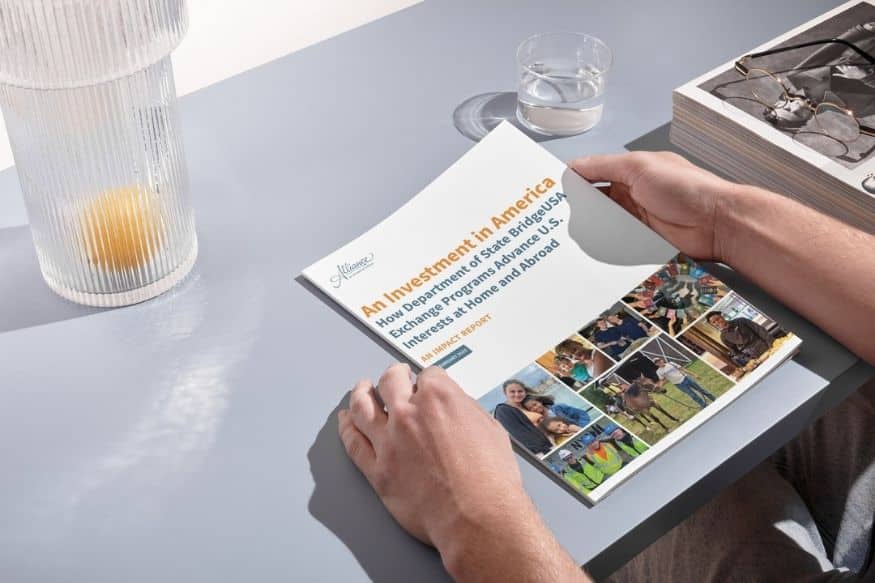Beatriz (“Betty”) Duran-Becerra spent eight months volunteering with the Mariposa DR Foundation, an organization devoted to empowering and educating girls and young women in the Dominican Republic to end generational poverty. She shares her experience implementing a sexual and reproductive health class to help Dominican girls feel autonomy over their own bodies and health.
Menstruation and Sexual and Reproductive Health are Global Health Issues
In 2018, the United Nations (UN) declared that shame, stigma, and misinformation surrounding menstruation contribute to serious human rights concerns and lead to detrimental health outcomes for women. In many Latin American countries, girls do not receive proper education on puberty and menstrual hygiene management before entering puberty. When girls do not have access to the proper resources and facilities, they are more likely to have trouble participating in school. They can feel disempowered in spite of the efforts to provide a comprehensive health education; taboos and the lack of women in leadership positions in the healthcare field present major challenges.
Furthermore, adolescent girls in Latin America and the Caribbean continue to be at high risk of adolescent pregnancy, which is associated with negative health outcomes for the mother and the child, in addition to social and economic disadvantages. According to the Pan American Health Organization, the Dominican Republic has the highest adolescent pregnancy rate in Latin America and the Caribbean. Sexual behavior for adolescents in the Dominican Republic is heavily influenced by the lack of comprehensive sexual and reproductive health education, the harmful total abortion ban, and the stigmatization of sexual behavior for adolescent girls. Despite the UN’s urging to incorporate comprehensive sexuality health education in schools, the Dominican Republic has yet to approve a plan to incorporate sexual and reproductive health in the national school curriculum.
Organizations that work with young girls, such as the Mariposa DR Foundation, have the potential to fill the gaps in reproductive health education by providing inclusive, science-based, and comprehensive sexual and reproductive health education, as well as helping adolescent girls find non-stigmatizing health services in their community. A girl can’t be fully empowered if she doesn’t feel autonomy over her own body and health.
Developing Material to Engage Students
During my first teaching cycle at Mariposa, I co-taught a sexual and reproductive health class for the eighth-graders, a group of twenty girls with strong personalities. My co-teacher Amelia and I administered a pre-test during our first class to assess the girls’ baseline knowledge of sexual and reproductive health and their general attitude toward the topic. Despite claiming that they didn’t need to be in the class, most of the girls couldn’t answer basic questions on female anatomy or the menstrual cycle. Moreover, multiple girls had written on the pre-test that they were not interested in sitting in a three-hour class twice a week to talk about sexual and reproductive health.
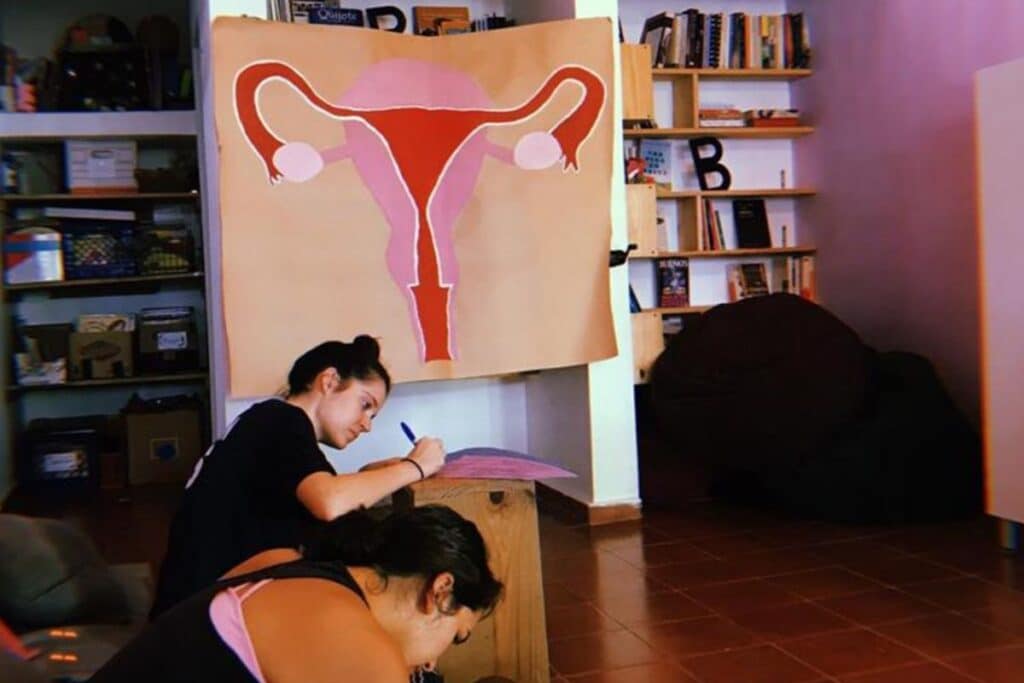
Image courtesy of Betty Duran-Becerra
Amelia and I collaborated to develop materials for a pilot sexual and reproductive health class for these students. We consulted with the on-site psychologist, a Dominican woman who had been working with Mariposa for years, to make sure the materials were culturally appropriate. Additionally, I received research-based materials from a registered HIV clinic in the eastern region of the Dominican Republic. In every class, a new challenge emerged, and I learned something new about the girls’ needs and about the best way to present information to them.
The girls’ initial negative attitude in class emphasized the shortcomings of sexual and reproductive health education in the public school system. It is one based on scare tactics. A lot of health educators use graphic pictures of people infected with sexually transmitted infections (STIs) to talk about the consequences of unprotected sex. These graphic images send the wrong message to students and further stigmatize people living with STIs. Public health studies have shown that scare tactics can lead to healthy behaviors only if a person feels capable to make the recommended changes and if they feel susceptible to the health issue. In the case of women in Latin America, their reproductive autonomy is constantly devalued by political systems, poverty, and cultural beliefs. Lack of access to proper sexual and reproductive health services compounds the problem.
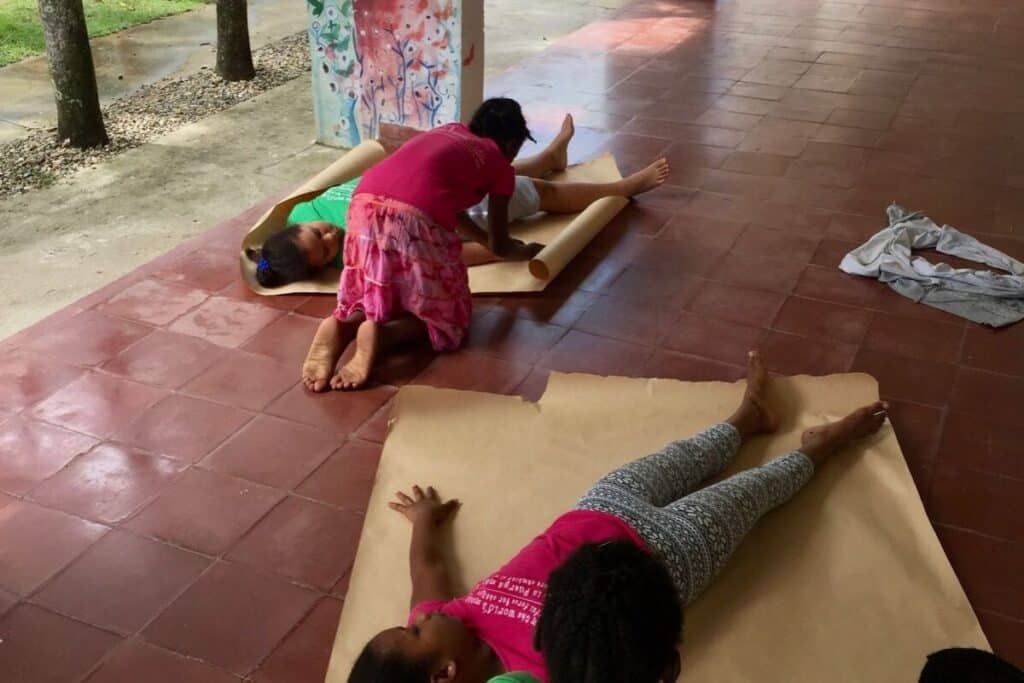
Image courtesy of Betty Duran-Becerra
Our pilot, sexual and reproductive health class, was designed to adapt to the personalities and interests of the Mariposas. In class, we noticed that the girls loved painting, competing against each other, and performing in front of their peers. Taking their interests into consideration, Amelia and I incorporated engaging activities such as skits, a contraception method “Heads Up” game, and art breaks between class lessons.
Talking about menstruation without shame
The most rewarding moment I experienced at Mariposa was when I co-led a menstruation workshop for our fifth-graders with the help of my Haitian-Dominican co-teacher. Previous to the workshop, my co-teacher and I were teaching a plant biology class to the youngest Mariposas, grades second through fifth. Using my experience teaching sexual and reproductive health to the eighth graders and my co-teacher’s extensive knowledge of Dominican taboos on menstruation, we developed engaging and culturally sensitive activities for the fifth graders. After discussing different ways in which we could prepare them for the workshop, we decided to introduce the idea of reproductive systems in our plant biology class. A week before the workshop, we taught the younger Mariposas about the reproductive parts of fruits and flowers, mentioning and explaining important vocabularies such as ovary and ovule.
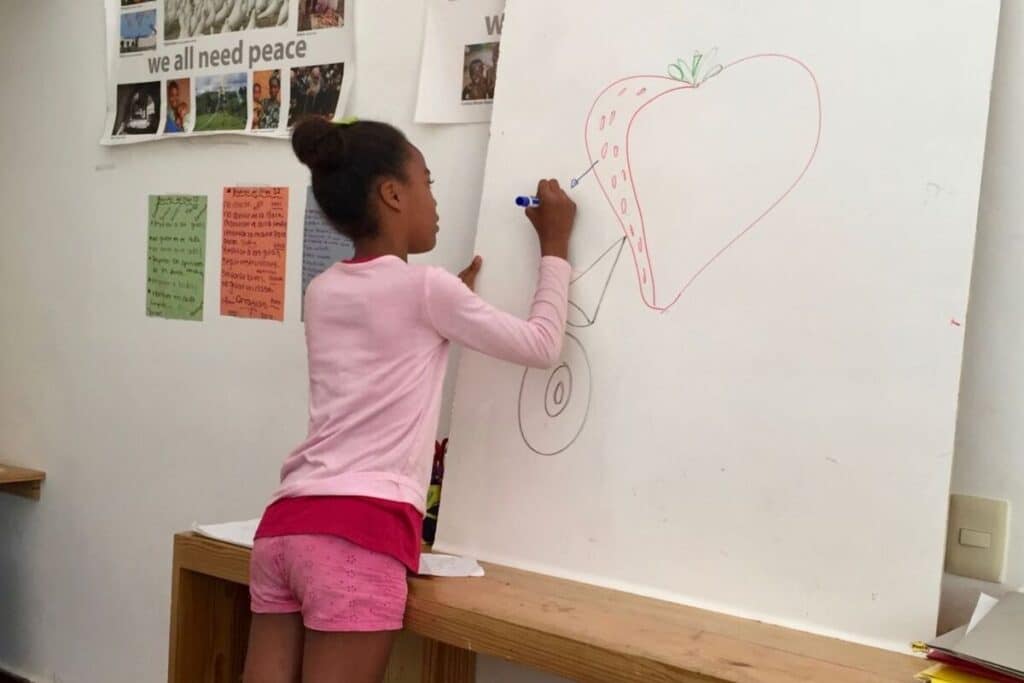
Image courtesy of Betty Duran-Becerra
We held our menstruation workshop on a Saturday, a day when only the middle and high schoolers usually come to the center for special programs. I had not revealed the topic of the workshop to the fifth graders so as soon as they arrived at the center, they pestered me with questions. Finally, one of the girls figured out we were going to be discussing puberty. Crossing her arms and with a frown on her face, she told me, “I already had the puberty talk with my mom and I fell asleep because of how boring it was. I don’t need to be here.” I was reminded of the same I-already-know-it-all attitude the eighth graders had demonstrated in our sexual and reproductive health class. Trying to keep a positive attitude, I responded, “You’ve never had a puberty workshop with me. I promise it will not be boring.”
As soon as we started the workshop, the students realized it was like nothing they had experienced before. From our sexual and reproductive health charades competition and our menstrual cycle bracelet-making to the active ball game we played to learn about fertilization, the girls were engaged and fascinated by the topics of sexual and reproductive health.
Throughout our menstrual hygiene discussion, my co-teacher and I fostered a comfortable environment by being vulnerable and honest about our own experiences of menstruating and going through puberty. One of our students, a girl I had trouble connecting with, raised her hand and said, “I’ve always had all these questions about puberty, but I never felt comfortable asking anyone until now.”
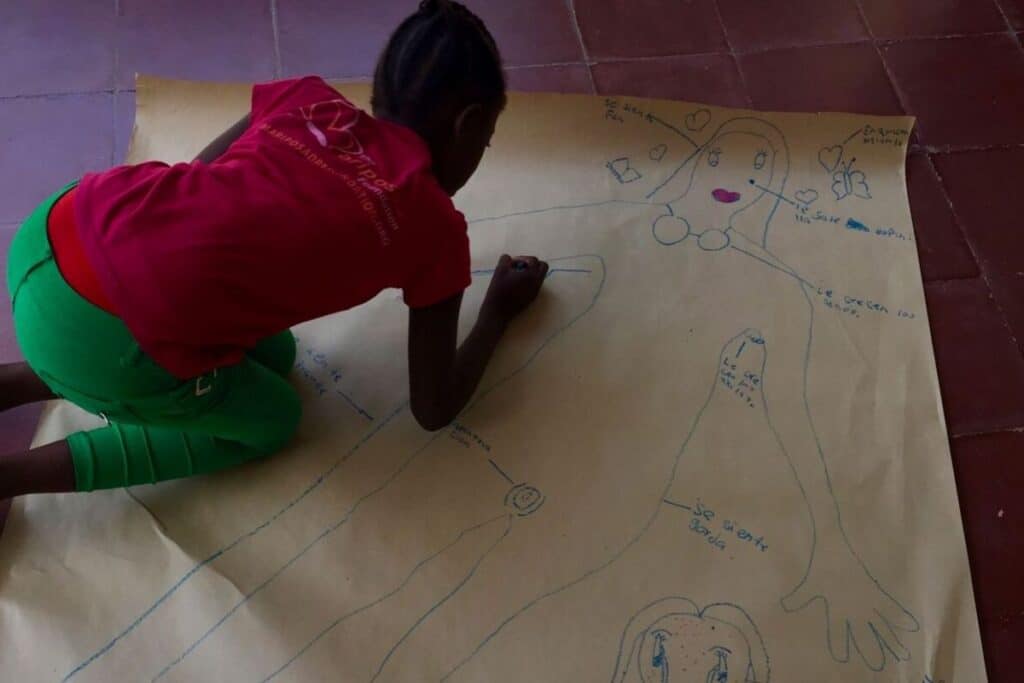
Image courtesy of Betty Duran-Becerra
At the end of the workshop, I felt the high energy in the room and the empowerment everyone, including my co-teacher and I radiated. The fifth graders felt like they had unlocked a beautiful secret; they felt like they were part of an exclusive menstruation and puberty club. As the girls headed out with all the new knowledge they had gained and the reusable cloth pads we had given them, the girl who had initially expressed she didn’t want to be in the workshop ran up to me. She told me with a radiant smile on her face, “I thought this was going to be boring, but I ended up having so much fun. I can’t wait to tell my mom everything I learned!” At that moment, I knew my co-teacher and I had accomplished something important—the girls had learned that sexual and reproductive health could be fun and empowering.
We need to continue discussing menstrual cycles in ways that don’t reinforce the narrative of pain and shame. Instead, we should be normalizing menstruation and teaching girls at a young age that their menstrual cycle is a way for their bodies to communicate with them. My time at Mariposa confirmed my passion for sexual and reproductive health education and made me realize the importance of tailoring science-based education materials to the needs and personalities of individual girls. Sexual and reproductive health must be comprehensive, honest, and innovative, but most importantly, it has to create a comfortable space for everyone.



